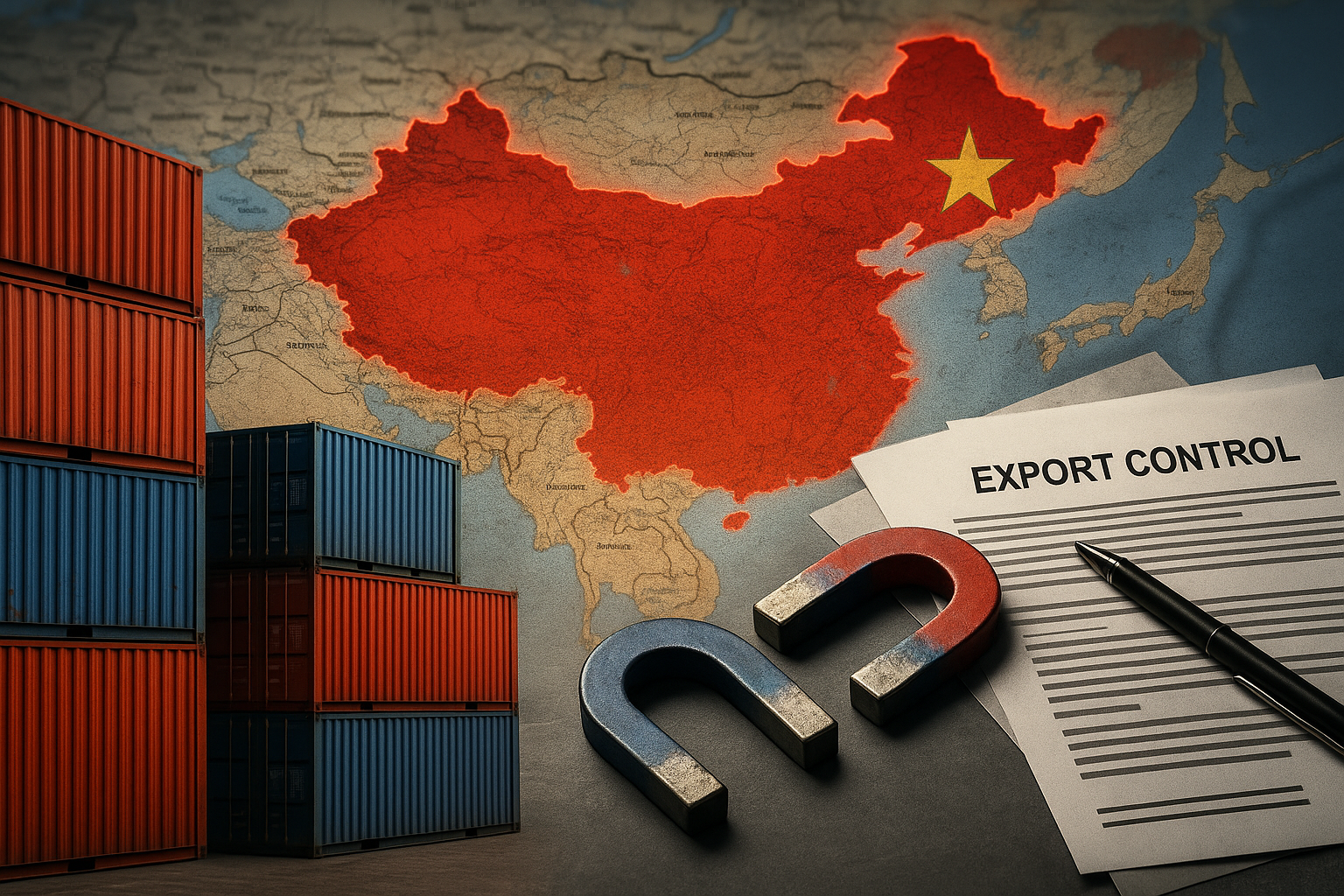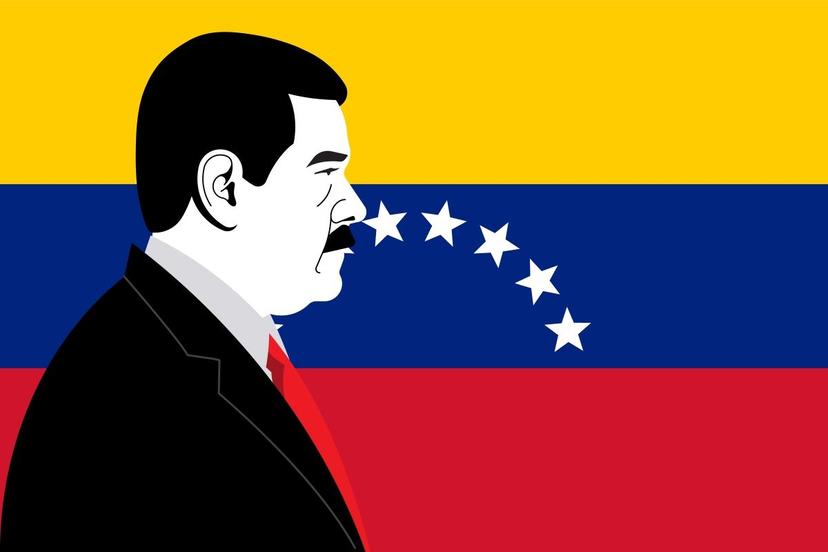China Expands Rare Earth Export Controls, Targeting Defense & Semiconductor Users Ahead of Trump-Xi Summit
By Tredu.com • 10/9/2025
Tredu

China Tightens the Screws: Rare Earths Under Stricter Export Controls
China has expanded export controls on rare earths and related technology, specifically aiming to restrict exports to defense users and subject semiconductor applications to intense licensing reviews. This move builds on rules introduced earlier in April, and comes just weeks before a key Trump-Xi meeting, signaling Beijing is preparing to wield rare earths as a strategic lever.
What’s New & What’s Targeted
Defense Users Now Barred Licensing
Under the new regime, China’s Ministry of Commerce declared that overseas defense users will no longer be granted export licenses for rare earth materials or technology. This is the first time China has explicitly blocked material access for military or dual-use development.
Semiconductor Use Under Case-by-Case Review
Export licenses for rare earths used in advanced semiconductor devices will now be granted only after detailed review. This targets companies outside China that use rare earths in chipmaking, magnets, or components tied to sensitive technology.
Broader Limits on Tech, Magnet, Assembly & Cooperation
The updated rules include:
- Export licenses now required for recycling equipment, magnet production technology, and magnet components/assemblies.
- Chinese firms must obtain permission before partnering with foreign entities in rare earth development or magnet tech.
- Foreign users of Chinese-made components or equipment may need licenses to re-export controlled items.
While the government says it will adopt licensing facilitation measures, critics say that obtaining approvals will still be cumbersome and slow.
Strategic Motives: Leverage in Upcoming Trump-Xi Talks
Beijing’s timing is deliberate. Analysts view the policy escalation as a way to increase negotiation leverage ahead of a high-stakes meeting between U.S. President Donald Trump and Chinese President Xi Jinping.
China’s rare earth dominance, especially in processing and magnet manufacture, gives it asymmetric control in technological and supply chain disputes. By expanding restrictions now, China may aim to pressure the U.S. to yield on tariffs or export controls.
Moreover, the move signals that China is willing to weaponize critical minerals as part of its broader trade diplomacy.
Global Reactions & Risks
Supply Chain Strain Deepens
Global manufacturers, especially in EVs, aerospace, and defense, already reeling from earlier curbs, see even tighter bottlenecks ahead. Some firms are now forced to preemptively stockpile or shift sourcing rhetoric.
European automakers have already paused production at parts of their supply chain after earlier Chinese magnets curbs.
Push for Diversification Accelerates
China’s move accelerates the urgency for alternative rare earth supply chains. Governments and companies are likely to increase investment in:
- Mining projects outside China (e.g. Greenland, Australia, U.S.)
- Domestic processing and recycling capacity
- Strategic reserves or stock buffers
Escalation Risk in Trade Conflict
The expanded restrictions raise the stakes in U.S.–China competition. If the U.S. sees this as coercive, it may respond with new sanctions, counter-export controls, or accelerated incentives for domestic critical mineral development.
It also complicates trade negotiations: China is signaling it holds a card the U.S. cannot easily ignore.
Implications & What to Watch
- Licensing outcomes & delays success or stalling in approvals will signal China’s true line.
- Supply disruptions watch for order backlogs, delays in magnets and motors, or shortages in sensitive tech sectors.
- Policy responses U.S., EU or allied governments may retaliate with stockpiles, subsidy programs, or new export controls.
- Trump-Xi summit outcome whether China eases terms or doubles down will be a central test of its rare earth diplomacy.
- Deal flows & investment shifts firms may accelerate M&A or capital spend into Western rare earth ecosystems.
China’s expansion of export controls over rare earths, especially targeting defense and semiconductor users, is a major escalation in how it uses critical minerals as leverage. As the global race for alternative supply chains intensifies, the ripple effects across industries, and geopolitics, are likely to be profound.

How to Trade Like a Pro
Unlock the secrets of professional trading with our comprehensive guide. Discover proven strategies, risk management techniques, and market insights that will help you navigate the financial markets confidently and successfully.


